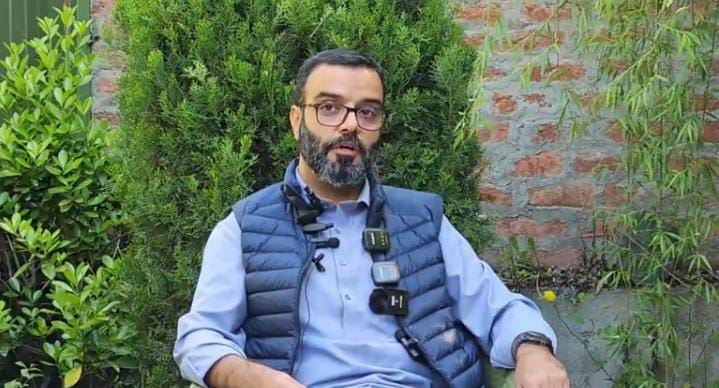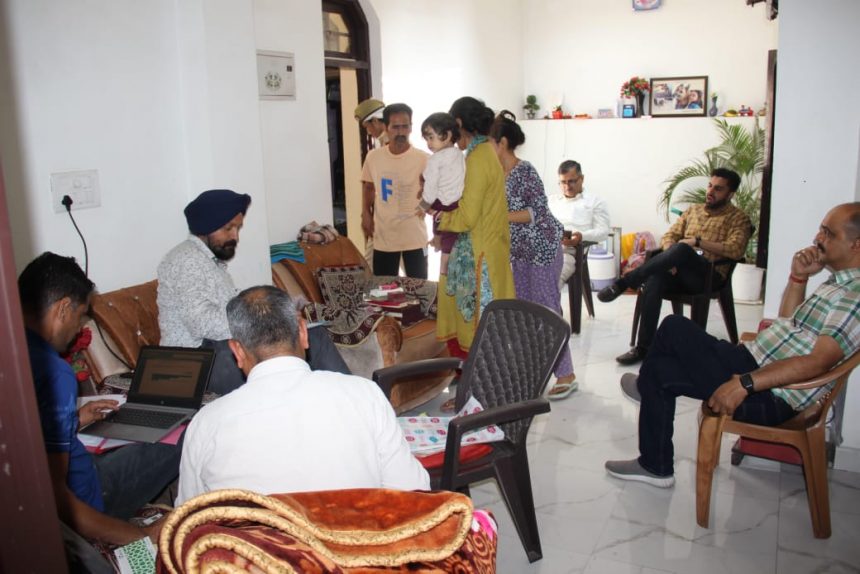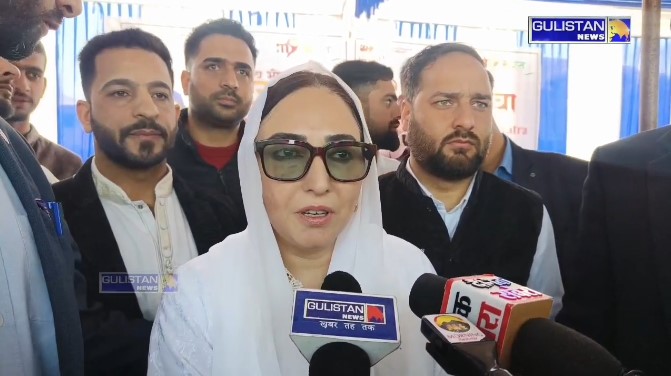Sonam Wangchuk’s house, located about 16 kilometers from Leh City, is in the middle of barren mountains. His office is close by.
The engineer, education reformer, innovator and Magsaysay Award winner, who first shot to national fame as the inspiration for Aamir Khan’s character in the 2009 film 3 Idiots, lives with his wife. Snowy peaks are visible from one side of the house, while on the other a brown, barren range can be seen.
Last month, Wangchuk concluded a five-day ‘Save Ladakh’ hunger strike that he started on 26 January, garnering support from thousands of people in Ladakh and beyond. The Union Territory is among the most vulnerable parts of the country to the impacts of climate change, as glaciers are retreating and whole villages are forced to relocate in search of water.
“The Climate Fast was symbolic, so that our voice reaches Prime Minister (Narendra) Modi. Through the fast I wanted to request not only the government, but also the general public to adopt a simpler lifestyle,” said Wangchuk when ThePrint caught up with him Wednesday.
Back from a long trip to Dubai and Assam, Wangchuk exhibited no travel fatigue, as he talked about statehood, climate concerns and the 6th schedule—a constitutional provision that empowers autonomous councils to administer rights over land, forest, sanitation, and employment, with the interest of safeguarding cultural and indigenous identities. Ladakh has been demanding to be included within its ambit.
In 2019, when the Modi government scrapped Article 370 in Jammu and Kashmir and bifurcated the erstwhile state into the Union Territories of J&K and Ladakh, Wangchuk had tweeted his gratitude to PM Modi for “fulfilling Ladakh’s long-standing dream” of becoming a UT. Thank you, he had said, to all who helped bring about “democratic decentralisation”.
More than three years later, he is now concerned about the possible cost of having that dream realised.
“Article 370 was giving us protection, but it was also keeping us tied to Kashmir whereas Ladakh is very different from Kashmir. The government promised us Schedule-6 but that has not yet been completed,” said Wangchuk.
The protection of Ladakh’s delicate environmental balance is his top-most worry and Wangchuk fears that the scrapping of Article 370 and separation from J&K may open the door for indiscriminate industrialisation in Ladakh in the future.
“We were worried that if Ladakh would become an open ground for exploitation and industries, it would be harmful to Ladakh but we knew that we could get protection in Schedule-6. That’s why we are demanding it,” he explained.
He added: “BJP had promised Schedule-6 (for Ladakh) in its manifesto for Parliament elections in 2019 and Hill Council elections in 2020. Our leaders have been fighting for this for three years. I thought it was just not the work of the leaders, it is in the interest of the whole of Ladakh, and that’s why I raised my voice for it.”
If environmental damage is one concern, jobs for the youth also weigh on his mind.
“The youth here are worried that there are no jobs. The government had promised to provide 12,000 jobs, but hardly 400-500 jobs have been found, and that too at a low level,” he claimed.
The government has formed a committee to address the problems arising in Ladakh, but according to Wangchuk, Ladakh’s political leaders are not happy with the committee.
“The Ministry of Home Affairs has formed a committee, but its agenda was not decided in consultation with the leaders of Ladakh. In 2020, when the leaders of Ladakh started boycotting the Hill Council elections, the government sent a private plane to Delhi and called them and held talks. It was a welcome step, but there was no talk on Schedule-6,” he claimed.









